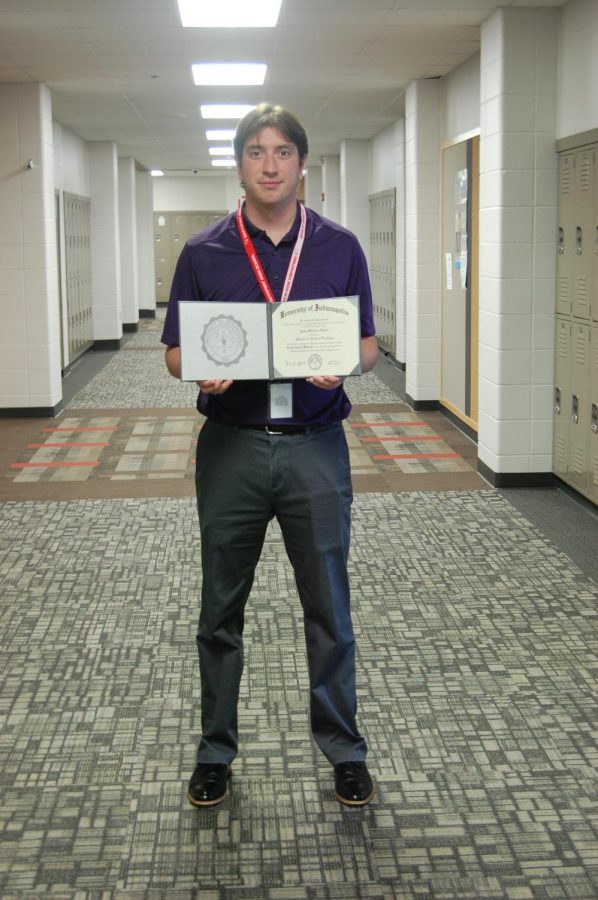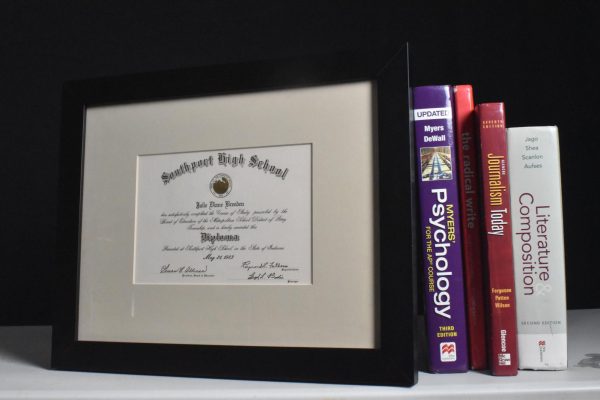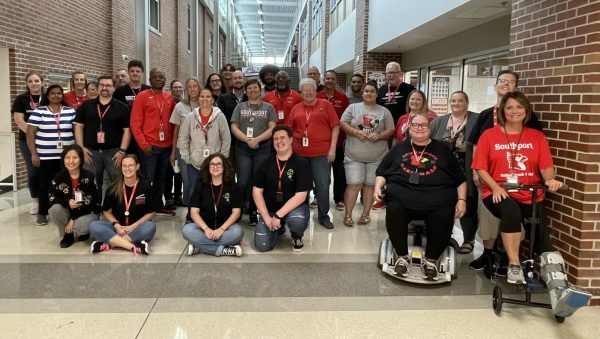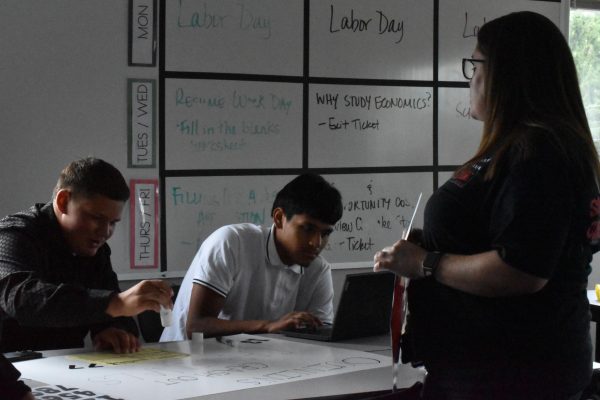Mastering education
Teachers work toward higher degrees
Science teacher John Davis obtained a Master’s degree in education from the University of Indianapolis. He is currently pursuing a second Master’s in chemistry through Indiana University.
Teachers seek further education for a multitude of reasons. At SHS, teachers may seek a higher degree for reasons such as earning extra money and learning more about their field. Although this can require late nights and hard work, Perry Township provides an additional pay of $5,000 annually for those who have a Master’s degree.
While salary is a deciding factor in getting a higher education, some teachers at SHS think the degree goes deeper than the dollar.
According to social studies teacher David Luers, who is working on Master’s degrees in both education and history through IUPUI, obtaining a degree is more about furthering opportunities for promotion and bettering himself as a teacher. Luers says he is a firm believer that the more teachers know about their content, the more effective it can make them.
“Cynically, most people focus on those Master’s (degrees) just so they can move up,” Luers said. “But if you take it seriously, I feel like there’s the potential that you can get something useful that you can bring to your classroom and make (class) better for your students.”
Although math teacher Jason Adler has this perspective as well, he is currently working on his Master’s in mathematics through Ball State University so he can continue teaching a dual credit Finite course. This need to obtain the degree is because of a new state law that requires teachers who instruct dual credit courses to get a Master’s degree by 2022. If they do not do this, schools will be out of teachers able to teach dual credit classes.
Science teacher John Davis is also experiencing increased pressure to earn his Master’s degree. He already has a Master’s in education because he went into a Transition to Teaching program, but Davis is currently working on getting a second Master’s in chemistry through Indiana University. Although he’s only taking one credit hour per term and does not have an overload of work, IU has helped Davis’s journey towards earning his degree possible because they are paying for graduate courses for dual credit instructors across the state.
According to Davis, this Master’s allows him to “be very, very good at the fundamentals of chemistry.”
Although there are many different reasons for teachers to obtain Master’s degrees, some agree they are helpful in one universal way: betterment.
“I think it can be beneficial if we look at it as, ‘It’s going to make us better teachers,’” Luers said.

Hey, y’all. It’s Elizabeth Valadez, and this year I’m back for my third and final year as The Journal’s Editor-In-Chief. I also play the clarinet,...







